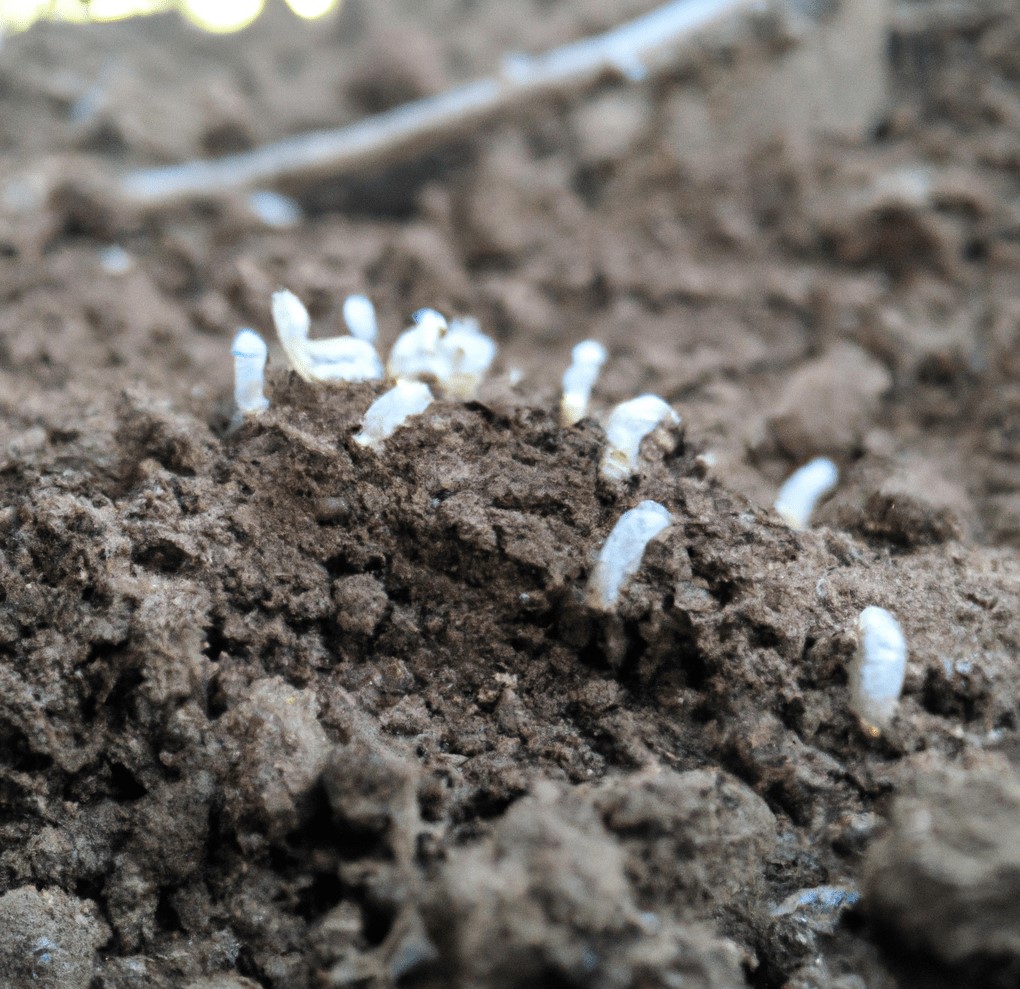
Tiny White Bugs in Soil What They are and How to Get Rid of Them? Kitchen Infinity
What Are the White Bugs in Soil? Scale bugs, white flies, or soil mites are likely the white insects that are sneakily hiding in your soil. Aphids, mealybugs, and fungus gnats are also among the pests that return home within the soil and harm the plant. This list that we have put together contains individual articles about each of these bugs.
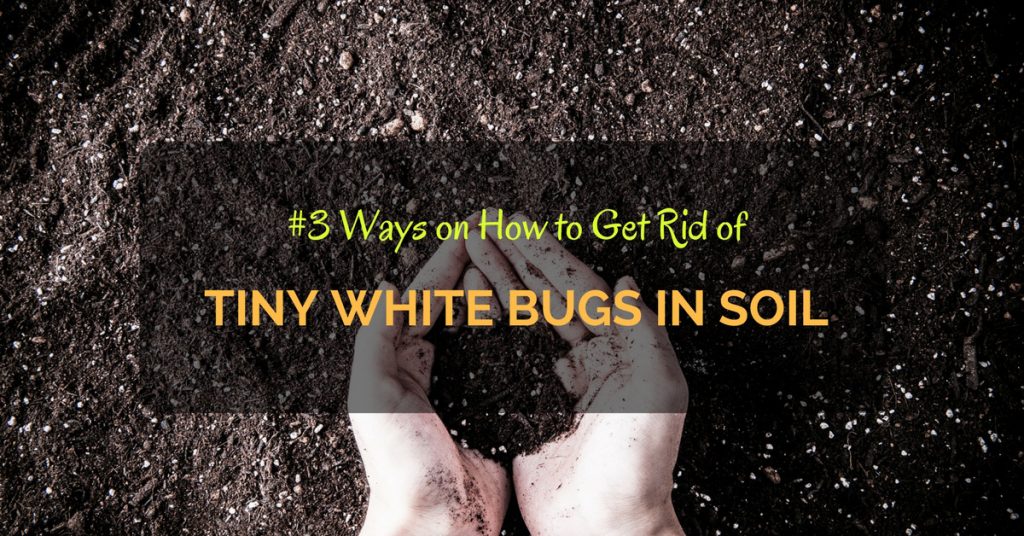
TinyWhiteBugsinSoil Grow Gardener Blog
By Anna Watson July 17, 2023 Ever noticed those mysterious tiny white bugs skittering around the soil of your beloved houseplants or compost heap and wondered, "Who are these uninvited guests?". And more importantly, "Should I be worried?". If so, you've landed on the right page! Table of Contents What are Tiny White Bugs in Soil
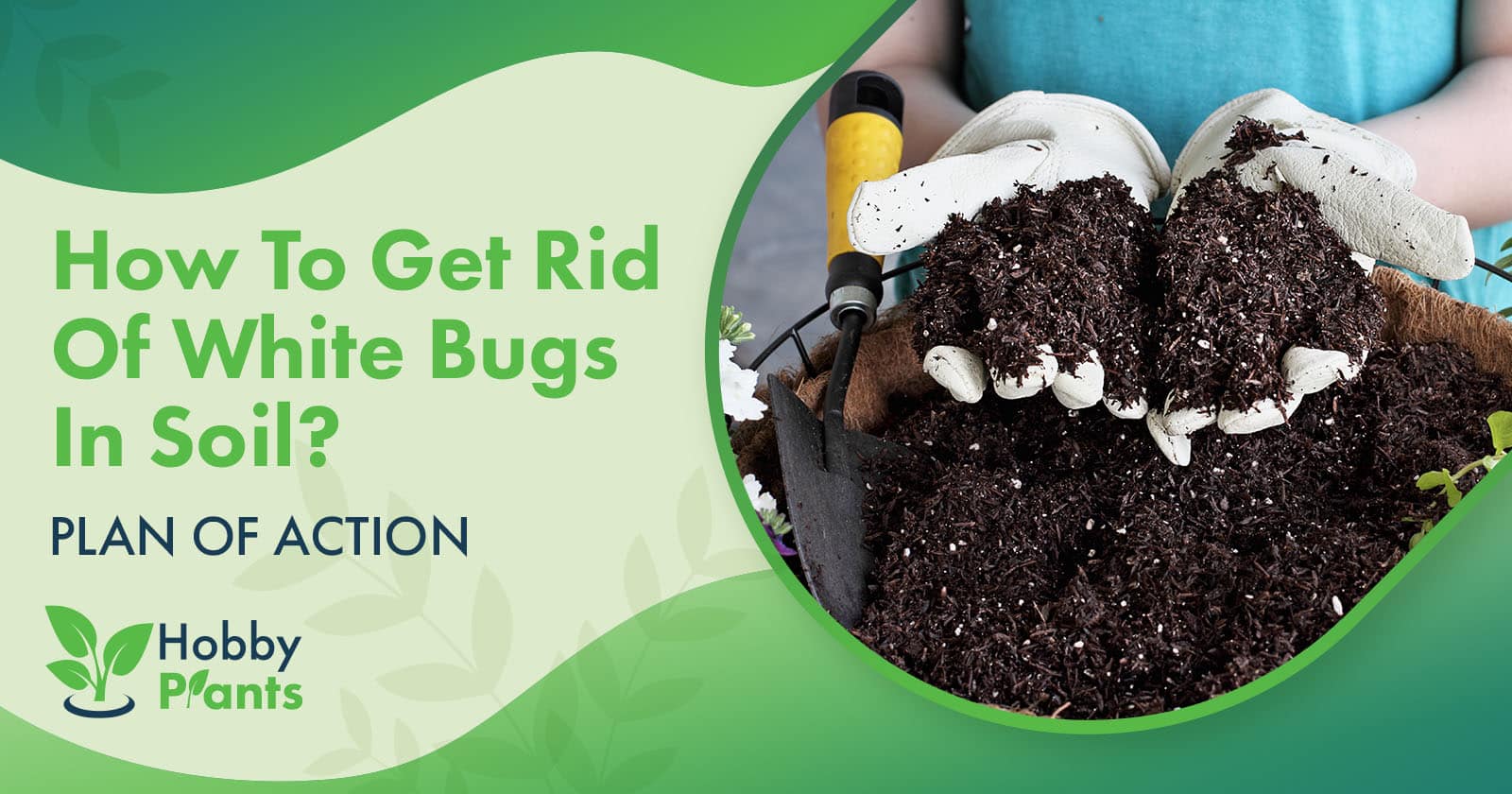
How To Get Rid Of White Bugs In Soil? [PLAN OF ACTION]
Little white bugs in soil may indicate a problem with pests such as whiteflies, thrips, or aphids. To get rid of them, consider using insecticidal soap, neem oil, or horticultural oil. Another option is to introduce beneficial insects, such as ladybugs or green lacewings, that feed on pests.

Tiny white bugs in soil? How to get rid of soil mites YouTube
Spider mites Spider mites are related to soil mites, but they're not the same. While soil mites help keep your garden in good shape, spider mites suck sap from your plants, robbing them of the food they need to survive. While you may see spider mites in the soil at the base of your plants, they also like to nest on foliage.
Does anybody know what these tiny white bugs in my soil are? houseplants
If it feels spongy and loose, or if you notice above ground symptoms like wilting, chlorosis, and stunting, do a little digging to see if there are any larvae chewing the roots away. Use a shovel to remove a patch of turf, and sift through the top three inches of soil and roots to look for the C-shaped larvae.

Tiny White Bugs In Soil The Truth Revealed!
What are These Little White Bugs in Soil? These are soil mites! They are difficult to see with the naked eye but if you look closely, you can see they are about the size of a pinhead and look a bit like very small ticks or spiders. There are many different types of soil mites, but none are harmful to people or animals.
White tiny bugs in soil, what could it be? pestcontrol
Perlite is a porous white rock that helps your soil breathe. Your soil is probably very healthy if your white dots look like this! If the white dots are immobile, scattered around, vary in size (even if slightly), and have a sort of irregular shape, don't automatically think these are eggs of some nasty pest or anything similar.

Tiny White Bugs On Indoor Plant Soil
You may have noticed small white bugs crawling around the soil in your garden or vermicomposting bin, These little creatures are called "soil mites," and they help decompose organic matter. They tend to explode in population if the soil has become overly wet and/or acidic.
Help. Little white bugs in my soil and the are jump what are they r/gardening
When you find tiny white bugs on or in the soil of your houseplants, it is usually a reason for alarm. And it is not the only sign that something is off—the plant might also show other signs of an infestation, such as yellowing leaves and stunted growth. However, not all tiny white bugs are harmful.
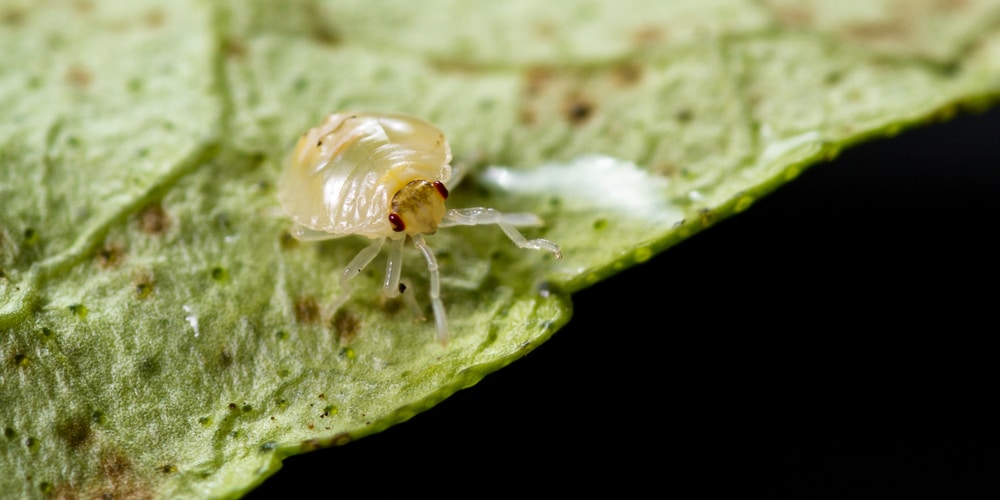
What to do if You Have Tiny White Bugs in the Soil? GFL Outdoors
White plant bugs are described as tiny white creatures with mouthparts for biting into plants and sucking juice. Additionally, white bugs rarely have wings but are plant-destroying crawling insects. Types of true white bugs in the order Hemiptera include mealybugs, scale insects, and aphids.
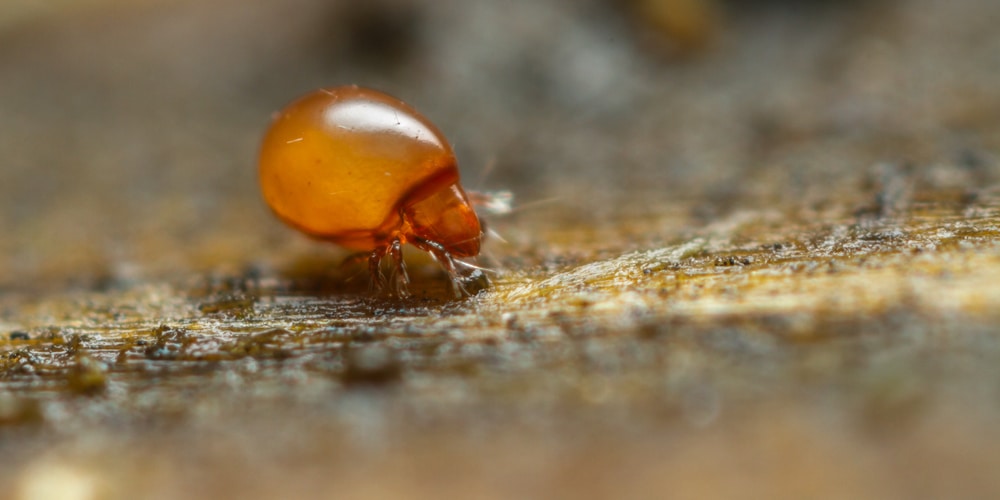
What to do if You Have Tiny White Bugs in the Soil? GFL Outdoors
If you see small white bugs on your plants or soil, it can be a variety of bugs like white soil mites, white spider mites, root aphids, grubs, mealybugs, springtails, or whiteflies. Most of these bugs are harmful and can cause your plant to turn yellow, wilt, and die. Small White Bugs Types of Small White Bugs On Plants and How to Get Rid of Them

White Insect In Soil
Sterilize the soil before planting by baking it in the oven or microwaving it. Avoid over-watering the soil, as ittle white bugs thrive in moist environments. Keep an eye out for any signs of infestation, such as small white bugs or a sticky residue on leaves, and take action immediately if you notice any.
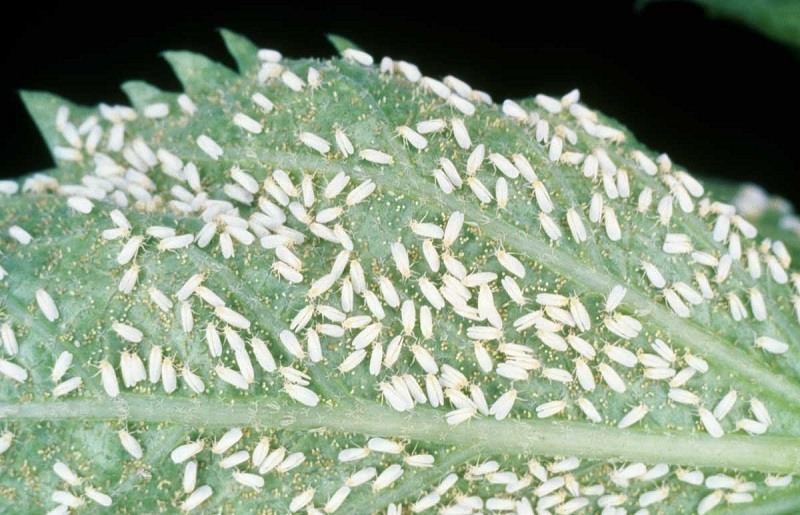
How to Get Rid of White Mites on Plants (Naturally) Pat Garden
Soil mites are tiny white bugs that are very hard to see with the naked eye. They're smaller than the tip of a pen. They thrive in high-nutrient soil, especially organic garden soil. Soil mites are more common than you think — a 100-gram soil sample can contain up to 500 mites. There are different types of soil mites, and most resemble the.

White bugs on my soil. Bugs & Pests Percys Grow Room Cannabis Growers Forum
In a spray bottle, combine 5 teaspoons dishwashing liquid with 1 gallon of water. Spray this on the soil surrounding your plant on a regular basis until the mites have vanished. 2. Cinnamon. 4 cups water + 1 teaspoon cinnamon Allow for 24 hours before pouring it twice a week onto the damaged plant's soil.

pests Please help identify tiny white bugs on the soil of my raised bed Gardening
Take one teaspoon of cinnamon powder and mix it in 4 cups (0.95 l) of water and leave it for 24 hours. Fill the mix in a spray bottle and spray it over the soil and plants two times a week. Often you can get rid of bugs in a single application, but if needed, you can repeat the process till you remove all insects.
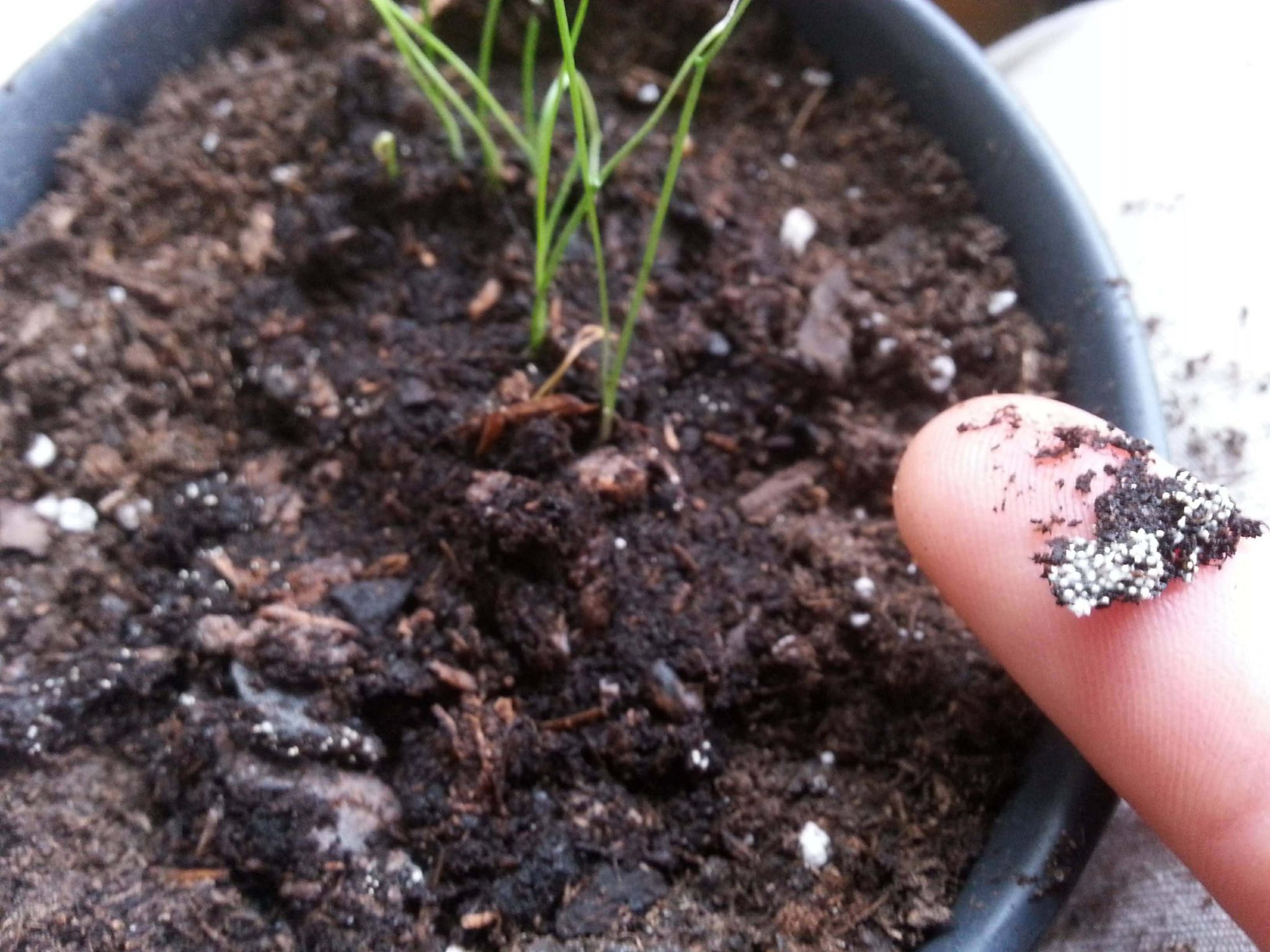
Fast Moving White Bugs in Your Soil? Common Houseplant Bugs My Garden Plant
Tiny white bugs crawling in the soil is an alarming sign of infestation, but don't worry, read the article for a solution. These tiny white bugs can be removed by chemically composed pesticides or with natural remedies such as insecticidal soap or neem oil. The easiest way is to remove the old infected soil and relocate your plant to fresh.